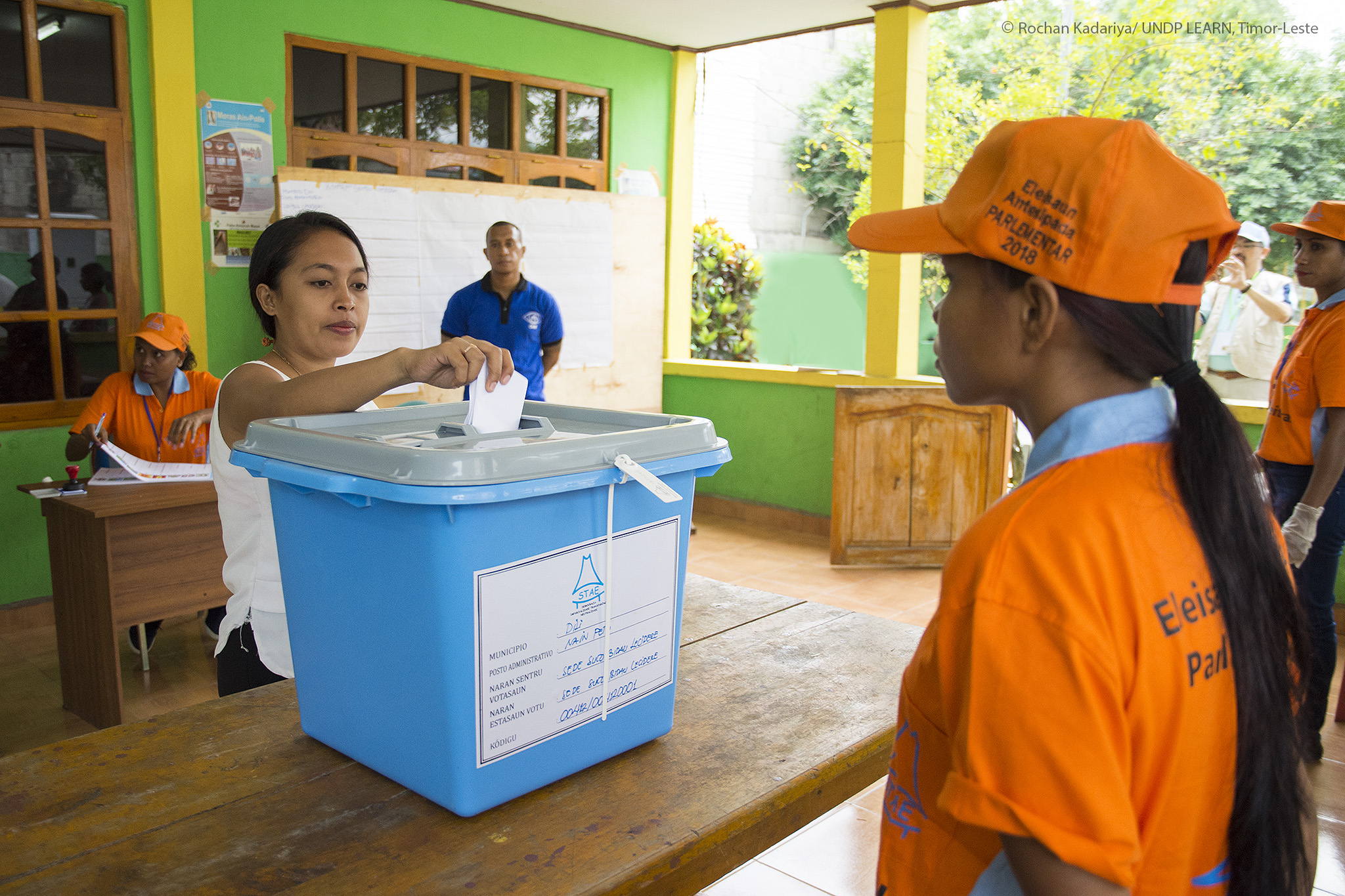The UNDP Electoral Project (LEARN) creates an enabling environment for civil society organisations specialising in gender equality and gender mainstreaming to build the capacities of women members of political parties
In the recent 2018 parliamentary elections, the turnout of women was 48.6%
Outside the legal framework, women still face many challenges in attaining political equality in Timor-Leste. Factors such as a lack of family support, limited confidence, geographical isolation, an inability to finance campaigns, and limited information all play a part in creating political barriers for women.
Therefore, targeted support is required to ensure that the suco, national, and municipal elections of the coming years are are inclusive and participatory for women in the capacity of voters, candidates, party agents, observers and polling staff.
The UNDP Electoral Project (LEARN) creates an enabling environment for civil society organisations specialising in gender equality and gender mainstreaming to build the capacities of women members of political parties.
Through capacity development programmes the project is also strengthening analytical skills and critical thinking to ensure the meaningful and equal participation of women at all levels of decision-making.
As part of capacity building the initiative of “Promoting Participation of Women in Political Parties” was organised jointly with two leading Timor-Leste women's organisations (CAUCUS and Movimentu Feto Foin Sae - MOFFE) for women political party leaders in the run up to 2018 parliamentary elections.
“The programme engaged more than 150 women - including young women aged 17-30 - encouraging them to involve themselves in political parties as candidates and party agents for elections.”
Some participants were listed as potential candidates for the 2018 parliamentary elections with possibility of being elected as Members of Parliament.
In addition, to increase awareness among the citizens on women’s participation in political processes, UNDP organised a live TV debate programme “Talks on Women Politics”.
The debate, conducted with political party representatives and coalitions running for the parliamentary elections, informed viewers and citizens of Timor-Leste of their priorities on increasing participation of women - especially young women - in politics.
Changes in reforms are already visible in electoral processes where it is mandatory for 50% of deployed polling staff to be comprised of women. In addition, Election Management Bodies for the first time - in the 2017 national elections - started recording gender-disaggregated data.
In the recent 2018 parliamentary elections, the turnout of women was 48.6%, slightly higher than in the 2017 elections, demonstrating an increase in women's participation in electoral processes.
The project has outlined strategies to promote women’s involvement in the political process that should be effective and implemented throughout the electoral cycle including pre-election, election day and post-election phases most importantly within the organisational structure of political parties.
Bringing reforms within political parties to increase women’s participation has been an effective strategy, which involves collaborating with a variety of actors including civil society organisations and the parties themselves.

 Locations
Locations








